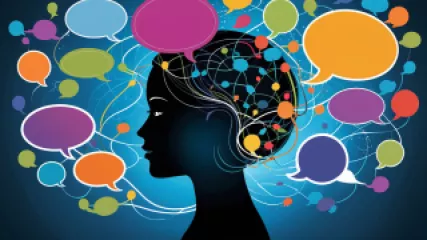Mastering Mindful Communication: A Step-by-Step Guide
In today's fast-paced and digitally connected world, effective communication has become more important than ever. Mindful communication, in particular, offers a powerful approach to enhancing our relationships, resolving conflicts, and fostering understanding. By practicing mindful communication, we can cultivate a deeper sense of connection, empathy, and mutual respect.
Mastering the art of mindful communication may seem daunting at first, but with the right guidance and practice, it can become a transformative skill that positively impacts all areas of your life. In this step-by-step guide, we will explore the principles and techniques of mindful communication, providing you with practical tools to navigate conversations with authenticity, compassion, and clarity.
Step 1: Cultivating Self-Awareness
Self-awareness is the foundation of mindful communication. Before engaging in any conversation, take a moment to check in with yourself. Notice your thoughts, emotions, and physical sensations. This self-reflection allows you to approach the conversation with presence and authenticity.
Exercise:
- Find a quiet space where you can sit comfortably without distractions.
- Close your eyes and take a few deep breaths to center yourself.
- Scan your body from head to toe, noticing any areas of tension or discomfort.
- Bring your attention to your thoughts and emotions without judgment. Simply observe them as they arise.
- Take a moment to set an intention for the upcoming conversation. What do you hope to achieve? How do you want to show up?
Step 2: Active Listening
Active listening is a vital component of mindful communication. It involves giving your full attention to the speaker and suspending judgment or the need to formulate a response. When you practice active listening, you create a safe space for the speaker to express themselves fully.
Techniques for Active Listening:
- Suspend judgment: Avoid jumping to conclusions or making assumptions about what the speaker is saying.
- Focus on the speaker: Maintain eye contact and give your undivided attention. Show genuine interest in what they have to say.
- Reflect back: Paraphrase or summarize what the speaker has shared to ensure understanding. Use phrases like, "What I hear you saying is..."
- Ask open-ended questions: Encourage the speaker to elaborate and provide more information by asking questions that cannot be answered with a simple "yes" or "no."
Step 3: Cultivating Empathy
Empathy is the ability to understand and share the feelings of another person. It plays a crucial role in mindful communication as it allows us to connect deeply with others and foster a sense of compassion. Cultivating empathy involves putting yourself in the other person's shoes and seeking to understand their perspective.
Practices for Cultivating Empathy:
- Practice perspective-taking: Imagine yourself in the other person's situation. How might their experiences, beliefs, or values shape their perspective?
- Show genuine curiosity: Ask open-ended questions to learn more about the other person's thoughts and feelings. Avoid making assumptions.
- Validate their emotions: Let the person know that their feelings are valid and that you understand why they might feel that way.
- Practice non-judgment: Resist the urge to label or criticize the other person's emotions or reactions. Instead, seek to understand them.
Step 4: Speaking with Intention
When it's your turn to speak, mindful communication involves expressing yourself with clarity, kindness, and intention. By speaking consciously, you can avoid misunderstandings, convey your thoughts effectively, and maintain a harmonious conversation.
Tips for Speaking with Intention:
- Choose your words wisely: Use language that is clear, respectful, and non-confrontational. Consider the impact of your words on the listener.
- Avoid assumptions: Clearly express your thoughts and feelings without assuming that the other person knows what you mean.
- Use "I" statements: Share your perspective using statements that start with "I" rather than "you." This helps avoid blame and promotes personal responsibility.
- Be concise: Get to the point and avoid rambling or going off-topic. This shows respect for the other person's time and attention.
Step 5: Managing Conflict Mindfully
Conflict is a natural part of any relationship, and mindful communication provides valuable tools for resolving conflicts peacefully and constructively. When conflict arises, it's essential to approach it with an open mind, empathy, and a willingness to find common ground.
Strategies for Conflict Resolution:
- Take a pause: If emotions are running high, take a break from the conversation to calm down and gather your thoughts.
- Practice active listening: Truly listen to the other person's perspective without interrupting or becoming defensive.
- Find common ground: Look for areas of agreement or shared goals to build upon. Focus on finding solutions rather than dwelling on differences.
- Seek compromise: Be open to finding a middle ground where both parties can feel heard and respected.
- Show empathy: Acknowledge and validate the other person's emotions and concerns, even if you disagree with their viewpoint.
Step 6: Practicing Self-Care
Mindful communication is not just about how we interact with others but also about how we care for ourselves. Prioritizing self-care ensures that we have the emotional and mental capacity to engage in meaningful conversations and maintain healthy relationships.
Self-Care Strategies:
- Set boundaries: Establish clear boundaries around your time, energy, and emotional availability. Learn to say no when necessary.
- Practice self-reflection: Regularly check in with yourself to identify your needs, triggers, and areas for personal growth.
- Engage in activities that nourish you: Dedicate time to activities that bring you joy, relaxation, and rejuvenation.
- Seek support: Reach out to trusted friends, family, or professionals for guidance and support when needed.
Conclusion
Mastering mindful communication is an ongoing practice that requires patience, self-awareness, and a genuine desire to connect with others. By following the steps outlined in this guide, you can develop the skills and mindset necessary to engage in meaningful conversations, resolve conflicts with grace, and cultivate deeper connections in all areas of your life. Remember, mindful communication is not about perfection but about embracing the journey of growth and understanding.






